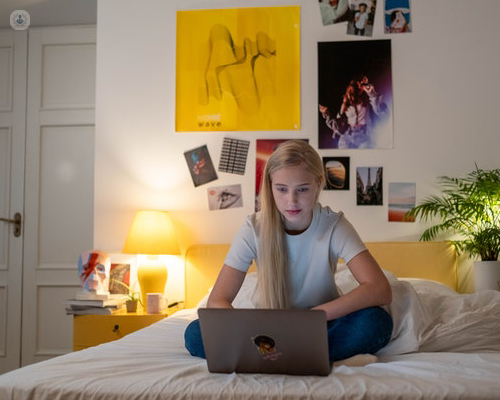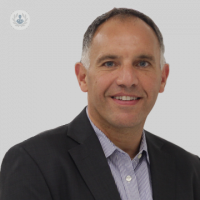Coronavirus and young people’s mental health
Written in association with:Dr Jon Goldin is a highly esteemed consultant in child and adolescent psychiatry based in central London. An expert in emotional and behavioural difficulties, he has a wealth of experience in working with young people to assess and manage depression and mood disorders. In the second of this series of articles relating to the impacts of coronavirus on mental health, he offers valuable insight into how parents can help their children navigate the difficulties of living during the pandemic and transitioning to the new normal.

How much do young people understand about the pandemic?
Even if children have not been expressly told about the details of the Covid-19 pandemic, Dr Goldin states that children will instinctively pick up on changes in our behaviour and other people’s. Panic buying in supermarkets, changes in daily routines and mask wearing out in public are all examples of how even very young children will intuitively pick up on changes and perhaps also tune into other people’s stress or anxiety. This is hard to avoid as people continue to try to adapt the ever-changing situation.
Older children and teenagers on the other hand, will have more access to information about the pandemic. Some of this information may be unreliable or exaggerated and is likely to make them anxious. As such, offering reassurance and security to young people in these turbulent times is essential.
How can we help young people to deal with living in a pandemic?
Dr Goldin explains that children take their cues from how adults behave around them and as such, we should look to model certain types of behaviour. We’ve all seen children imitating or copying older siblings and adults and in stressful situations, this is no different. As he explains:
“ Your children will take their cues from you, as their parent…We’ve got a twenty-four-hour news cycle and you just need to turn on the TV or the radio to hear things about coronavirus and the latest bad news…but I think one needs to monitor that and moderate it to some extent. ”
Rather than watching a constant stream of news in the background, much of it worrying and unsettling, Dr Goldin suggests watching a reputable news source just once or twice a day as a more moderated way of getting the latest updates without becoming overwhelmed by negative news. In this way, you will have some control of how much information and the reputability of what your children are exposed to.
In terms of social media, Dr Goldin advises much the same approach. Maintaining boundaries about how much time is spent online can be a helpful tool for parents with teenagers, who just like adults, will be looking online for further information to try to understand what is happening. A boundary he suggests as particularly useful is not allowing young people to have phones at night in their bedrooms, as reading potentially scary, unreliable or exaggerated stories about the pandemic at this time of day is highly anxiety provoking.
However, he advises against spying or policing your teenager’s phone too strongly. Instead, he recommends using open dialogues with young people to listen to them and try to understand their worries. By offering a calm but informed approach to the situation, you can offer children reassurance to help them cope with the changes the pandemic has brought.
You can find videos of Dr Goldin discussing the effects of the coronavirus pandemic on mental health on his Top Doctors profile. If you think your child would benefit from a consultation with Dr Goldin to discuss their mental health, visit his Top Doctors profile.
Dr Goldin recommends The World Health Organisation’s website, Young Minds and MindEd, as reliable sources of information for teenagers and young people.


